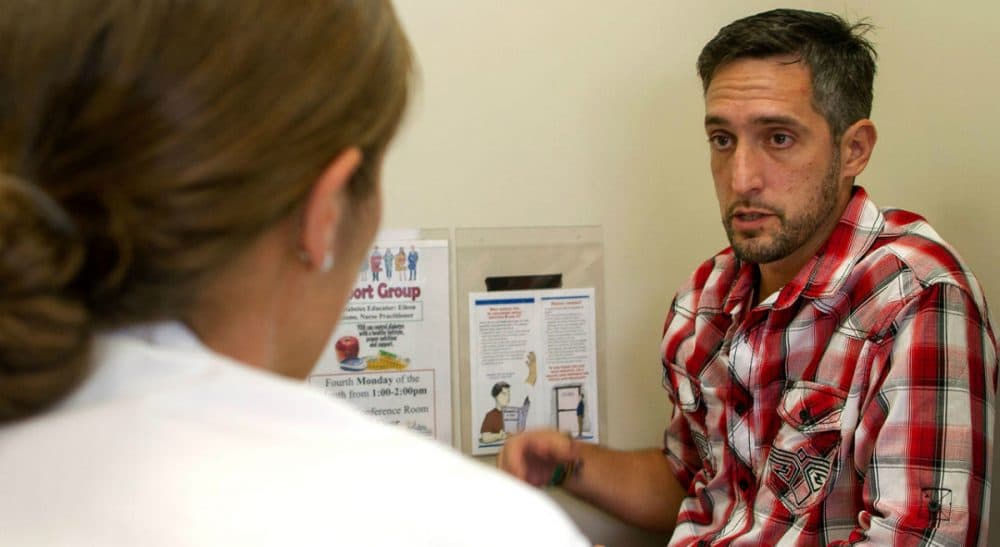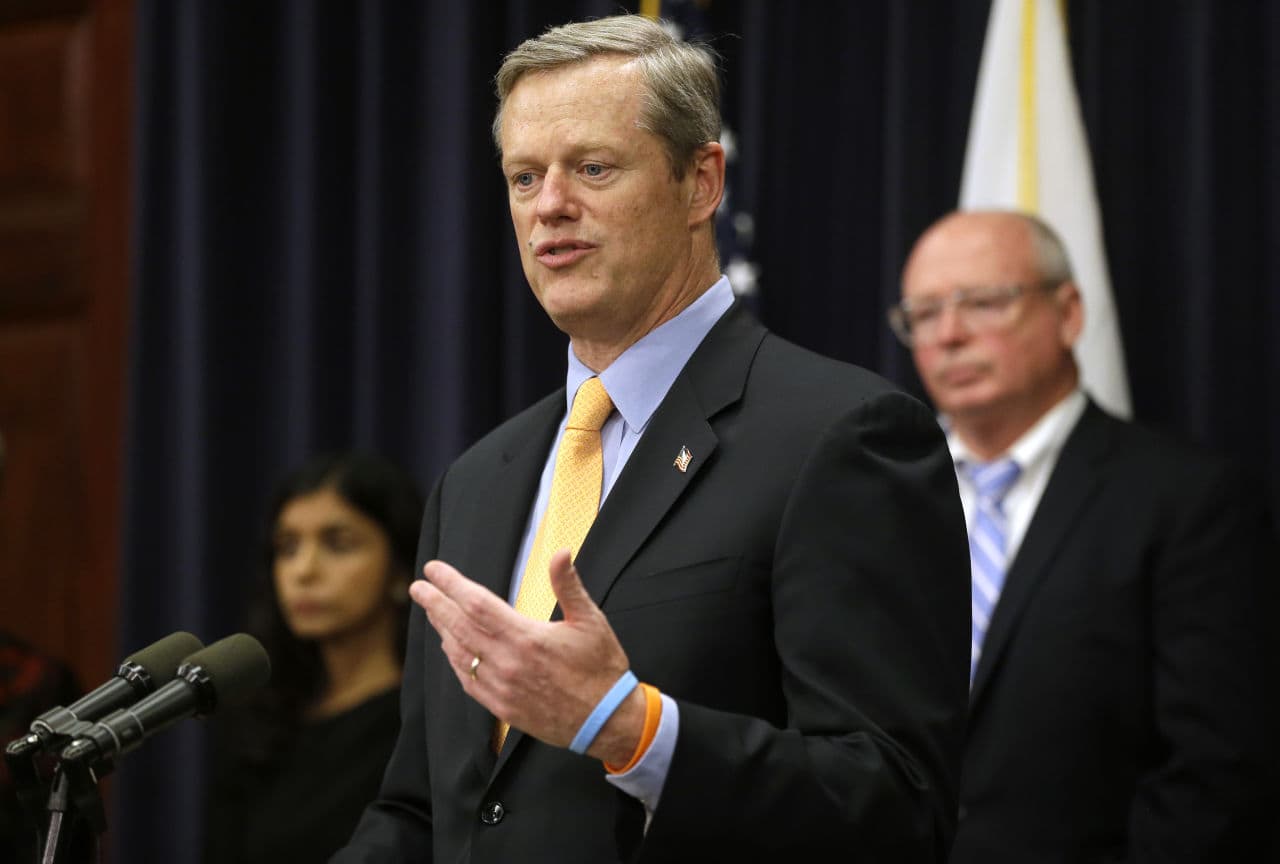Advertisement
A Multipronged Approach To The Addiction Epidemic Has To Include Empathy

Gov. Charlie Baker’s new proposed opioid legislation brings some good intentions to combating the drug crisis. It proposes that a medical patient’s first opioid prescription be written for only a 72-hour dose. So no more bottles of 50 pills before finding out if 10 will do. It also proposes that doctors be allowed to hospitalize addicted people against their will for 72 hours — if, for instance, they’ve had near-lethal overdoses. And it proposes that women committed for mandatory drug treatment on a "Section 35" should actually be sent to secure treatment units instead of warehoused at MCI Framingham when other beds run out.
As someone who’s worked a long time in a community clinic, I’m on board. I’m heartened that we’re beginning to make some long overdue changes: less excessive prescribing, less emphasis on stuffing ill people into prisons, more on treating them, including with medications like buprenorphine.
However, I’m just not sure these measures will do much on their own. If we truly want to help people who are addicted to opioids -- or cocaine, alcohol, cigarettes, gambling or spending — we need to push for a much bigger sea change. In fact, all of us need to nudge our thinking about addiction, so people who are addicted can change how they think about themselves.
What do I mean?
I am remembering how, when I worked in a clinic that also housed a methadone program in its dark grimy basement, the neighbors made us lock the site’s back gates that would have allowed the patients to shortcut up their streets. Of course no one wants to be mugged by someone desperate for cash to buy drugs, but I don’t think that was the real fear. I think the neighbors, and most of us, want to believe that people struggling with addiction are somehow essentially different from “us” — and should be shunned.
The truth is that some form of abuse and addiction is likely to threaten many, even most of us, at some point in our lives. So we need to face that fact, and stop treating addicted folks like aliens. It’s time to admit that the phenomenon is widely shared; that it’s all about there-but-for-the-grace-of-God-go-I. So let’s help lower shame and stigma instead of drowning people in it.
If we truly want to help people who are addicted to opioids -- or cocaine, alcohol, cigarettes, gambling or spending -- we need to push for a much bigger sea change.
If you talk to people struggling with their use, or read good first-person accounts about addiction — Sarah Hepola’s recent bestseller "Blackout" comes to mind — you realize that the substances people swallow, or the compulsions that take over their minds, make them do really embarrassing stuff they wouldn’t otherwise do. If their habit gets bad enough, they may also do some pretty terrible things to those they love. They get stuck in a spiral: the more they use, the more nasty or embarrassing things they do, the more they feel disgusting and unlovable, and the harder it is to go for help.
Yes, they are terrified of not being able to cope without the chemicals. And yes, their minds are ruled by craving. But one big reason they don’t go for help, or don’t stay with it long enough to change, is because they are ashamed. They can’t stand that their resolve and willpower aren’t enough to solve their problem. They try and try in secret to get control, and they fail. They are mortified to realize that they are being pulled out to sea by a big, hungry shark. To save the little face they have left, they say, "Shark? There’s no shark. Don’t you dare say 'shark.'"
Advertisement
If we want to turn around the drug crisis, we need to talk about the shark — a lot. We need to bring abuse and addiction out of the basements into everyday life. Instead of making treatment centers invisible so as not to offend the neighbors, we need to put them everywhere in public spaces — and admit that the problem is an ongoing part of life.
all of us need to nudge our thinking about addiction, so people who are addicted can change how they think about themselves.
What if every shopping mall had a drop in center where compulsive shoppers could go to and get support for not spending, or where they could meet with an advocate to help lower interest rates on their debt? What if computers came with software that you could activate so you couldn’t spend money online for weeks at a time? What if casinos came with on-site, free counseling offices? What if Foxboro and Fenway gave space to Alcoholics Anonymous and Narcotics Anonymous meetings that ticket holders could attend before or during games.
And what if we opened subsidized or free, first rate outpatient, residential and aftercare programs for the many out-of-control users who can’t afford the high-end private ones that are so helpful for wealthy patients and their kids?
I’d be happy to see legislation that insists that the pharmaceutical companies that make the painkillers, the casinos that profit from compulsive gamblers, the alcohol manufacturers that love excessive drinkers, and the credit card companies that make money off compulsive-shopping debt — not to mention the tobacco companies and the soon-to-be-proliferating marijuana companies — all be mandated to chip in to create a huge fund to help folks who wade into these behaviors too far and get caught by the great white Jaws. They are us, or our kin, friends and colleagues, and they need to feel us wanting them to recover.

